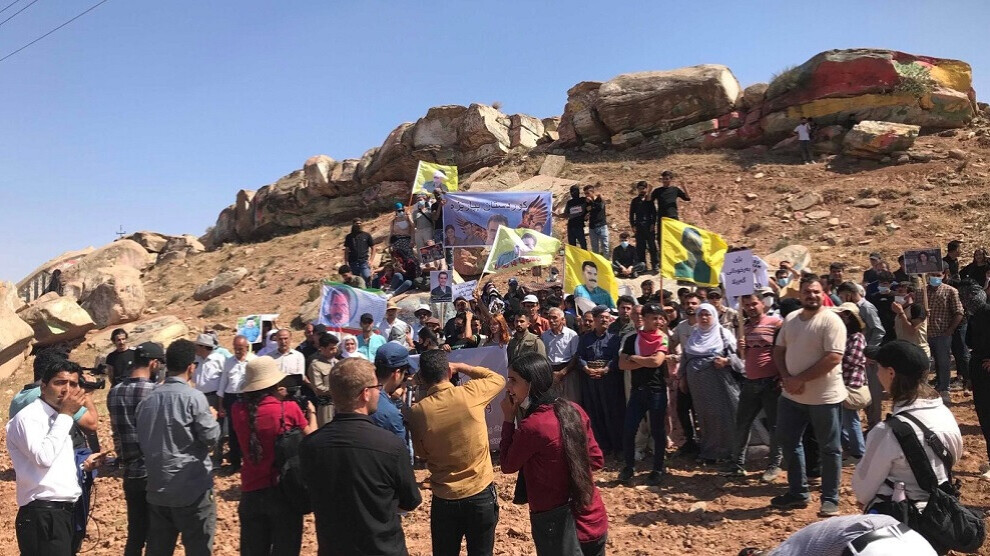Activists from Vienna arrive in Kurdistan as peace delegation
Several activists from Vienna are taking part in an international delegation to Kurdistan in order to create publicity for the war of the Turkish regime.
Several activists from Vienna are taking part in an international delegation to Kurdistan in order to create publicity for the war of the Turkish regime.

In southern Kurdistan (northern Iraq), an international delegation aims to draw attention to Turkey's war of aggression, which violates international law, and to build pressure on the authorities of the Kurdistan Region of Iraq (KRI) to stop their support for the Turkish regime. On Wednesday, the delegation took part in a protest march that was stopped by security forces at a KDP checkpoint and then broken up.
"As part of the EU and through its role in the OSCE (Organization for Security and Cooperation in Europe), the Austrian state also bears a share of responsibility for the war in Kurdistan," explained Georg Bauer, one of the Viennese activists participating in the delegation. "Austria is involved in the criminalization of the Kurdish freedom movement and in the persecution of Kurdish activists because Austria supports the fact that the Kurdistan Workers' Party (PKK) is on the EU terror list. We want the PKK to be removed from the list because only dialogue and peace negotiations can stop the war in Kurdistan."

In a statement on the delegation, the Viennese Kurdistan solidarity group Rise Up 4 Rojava Vienna, of which Bauer is also a member, also called for an end to arms deliveries to Turkey and an end to the so-called refugee deal with the Turkish regime. According to the activists, the so-called "refugee deal" between the EU and Turkey makes millions of people hostages of the regime. The Council of the Kurdish Society in Austria (FEYKOM), Rise Up 4 Rojava Vienna and many other political and civil society organizations have been demanding for years that Austria take a stand against the war in Kurdistan in the spirit of active neutrality and end its support for Turkey. This also includes a clear position against NATO, said Rise Up 4 Rojava and remarked that Turkey's colonialist and expansionist policy is not possible without NATO support.